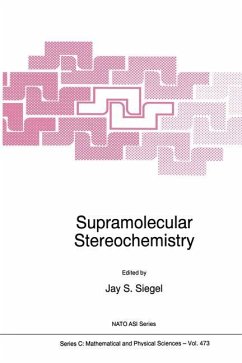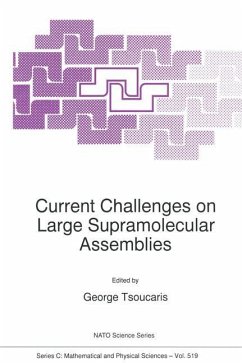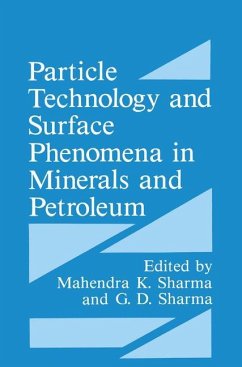
Mineral Scale Formation and Inhibition
Versandkostenfrei!
Versandfertig in 6-10 Tagen
151,99 €
inkl. MwSt.

PAYBACK Punkte
76 °P sammeln!
This book documents the proceedings of the symposium, "Mineral Scale Formation and Inhibition," held at the American Chemical Society Annual Meeting August 21 to 26, 1994, in Washington, D. C. The symposium, sponsored by the Division of Colloid and Surface Chemistry, was held in honor of Professor George H. Nancollas for his pioneering work in the field of crystal growth from solution. A total of 30 papers were presented by a wide spectrum of scientists. This book also includes papers that were not presented but were in the symposium program. The separation of a solid by crystallization is one...
This book documents the proceedings of the symposium, "Mineral Scale Formation and Inhibition," held at the American Chemical Society Annual Meeting August 21 to 26, 1994, in Washington, D. C. The symposium, sponsored by the Division of Colloid and Surface Chemistry, was held in honor of Professor George H. Nancollas for his pioneering work in the field of crystal growth from solution. A total of 30 papers were presented by a wide spectrum of scientists. This book also includes papers that were not presented but were in the symposium program. The separation of a solid by crystallization is one of the oldest and perhaps the most frequently used operations in chemistry. Because of its widespread applicability, in recent years there has been considerable interest exhibited by academic and industrial scientists in understanding the mechanisms of crystallization of sparingly soluble salts. The salt systems of great interest in industrial water treatment area (i. e. , cooling and boiler) include carbon ates, sulfates, phosphates, and phosphonates of alkaline earth metals. Although not as common as calcium carbonate and calcium sulfate, barium and strontium sulfates have long plagued oil field and gas production operations. The build-up of these sparingly soluble salts on equipment surfaces results in lower heat transfer efficiency, increased corrosion rates, increased pumping costs, etc. In the laundry application, insoluble calcium carbonate tends to accumulate on washed fabrics and washing equipment parts, resulting in undesirable fabric-encrustation or scaling.














